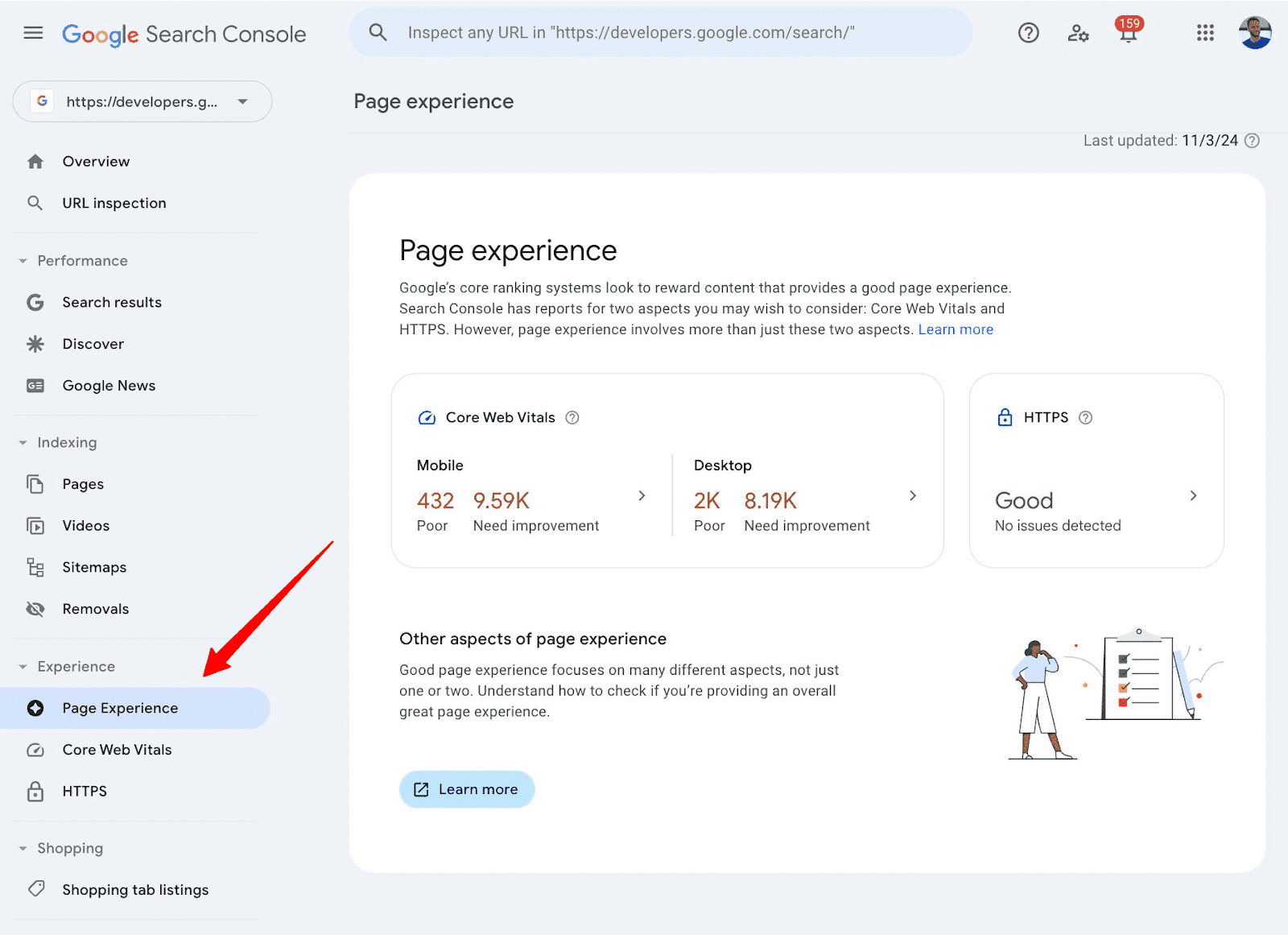New Google Ads Brand Report
Google has quietly introduced a powerful tool for advertisers: the
Read MoreGoogle has officially removed the Page Experience Report from Google Search Console, marking the end of an era for webmasters who relied on this tool to measure their site’s adherence to Google’s page experience signals. While this decision may come as a surprise to some, it aligns with Google’s ongoing efforts to streamline its tools and resources, encouraging users to rely on broader, more robust platforms like Lighthouse. Let’s dive into the history of the Page Experience Report, why Google decided to retire it, and what this change means for website owners and SEO professionals.
The Page Experience Report was first introduced in April 2021 as part of Google’s initiative to emphasize page experience signals in search rankings. Initially, it focused on mobile pages, reflecting the growing importance of mobile usability in search algorithms.
In January 2022, Google expanded the report to include desktop pages, aligning with the rollout of the desktop version of the Page Experience algorithm. This addition allowed webmasters to monitor the performance of users across both platforms, providing a comprehensive overview of their site’s usability and user experience metrics.
Fast forward to 2024, Google has now retired this tool, stating that it will be replaced with a general guidance page-on-page experience. According to Danny Sullivan, Google’s Public Liaison for Search, this shift reflects Google’s evolving approach to page experience optimization.

The Page Experience Report was designed to measure how users perceive the experience of interacting with a web page. It incorporated the following key metrics:
This report became a cornerstone for understanding how well a website aligned with Google’s Page Experience signals, which directly impacted search rankings.
Google’s decision to retire the Page Experience Report is part of a broader trend of simplifying and consolidating its tools and resources. Here are the main reasons behind this move:
The removal of the Page Experience Report is not an isolated event. In recent months, Google has also retired several other tools and reports, including:
Google’s decision to sunset these tools reflects a significant shift in how the company expects webmasters and developers to evaluate site performance.
The retirement of the Page Experience Report and other related tools may feel like a loss, but it also presents an opportunity to explore more advanced and versatile resources. Here’s what SEOs and website owners should do moving forward:
While the Page Experience Report’s removal might seem like a step back, it signals a shift toward more sophisticated tools and techniques. Google’s emphasis on general guidance encourages webmasters to adopt a holistic approach, focusing on delivering the best possible experience to users.
Page experience optimization will remain a key factor in search rankings, even if it’s not directly tied to a specific report in the Search Console. By embracing tools like Lighthouse, staying informed about Core Web Vitals, and following Google’s updated guidelines, SEOs and website owners can ensure their sites continue to perform well in search results.
The retirement of the Page Experience Report from Google Search Console marks a significant change, but it’s far from the end of page experience optimization. Google’s focus on general guidance and robust external tools like Lighthouse provide webmasters with the flexibility and resources needed to adapt to this new era.
If you need expert guidance to enhance your website’s performance and SEO, contact Attorney Marketing Network today to ensure your site thrives in the evolving digital landscape. Let’s help you stay ahead!